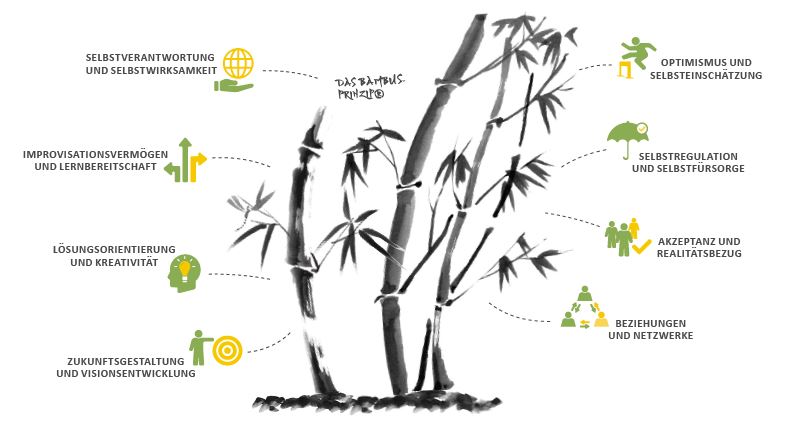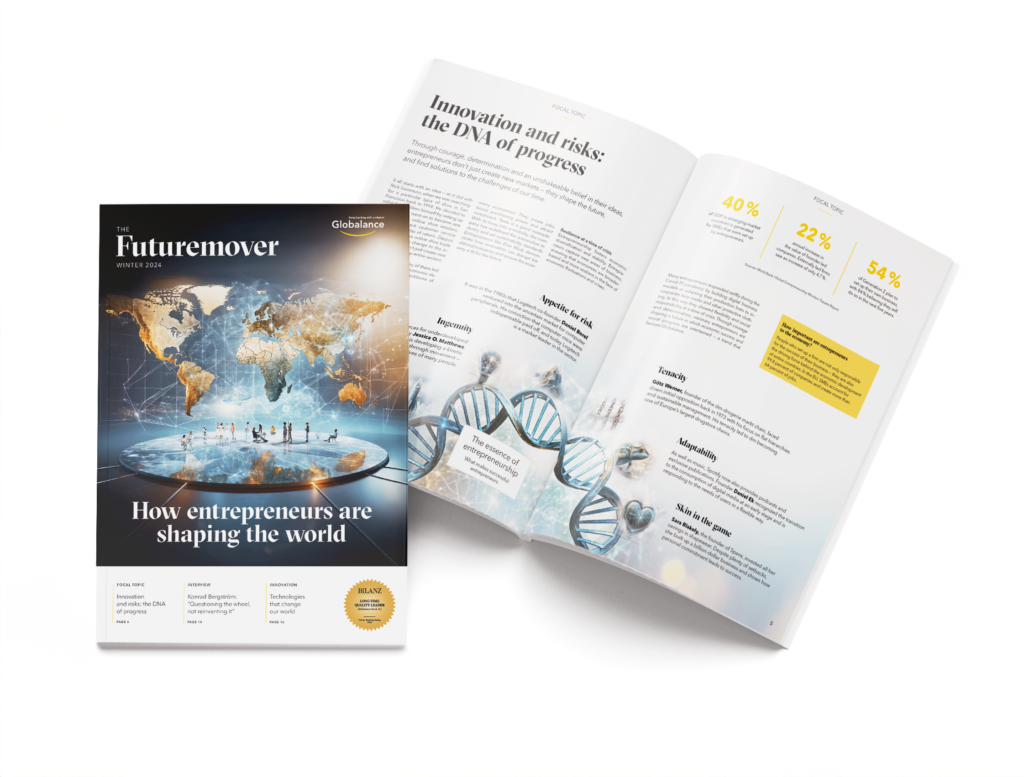News & Trends
Resilience – The Ability to Grow Through Crises

Unforeseeable events just keep on happening. But why is it that one company goes bankrupt during the crisis while its competitor uses innovative solutions to start mass-production?
Let’s talk about resilience. Or rather about physics, because this is the field where the term has come from: materials are resilient if they are flexible enough to return to their original form after being subjected to extreme external influences (Latin “resilire” = to “rebound” or “bounce back”). This quality features in psychology, which applies it to the individual. Resilience in people means that in very stressful situations they are able to activate their natural defence mechanisms and stay mentally healthy. However − and this is the really interesting point − rather than being a return to their original condition this process is an adjustment to their changed circumstances. Resilient people emerge from crisis situations in better shape, they assume responsibility (for themselves and others) within society and in their jobs, and they consequently also ensure that the state is able to fulfil its economic and societal duties of care.
„Resilience– activating natural defence mechanisms in very stressful situations and staying mentally healthy.“
Nelson Mandela spent 27 years in prison before he was elected as South Africa’s first black president four years later. He was certainly an extreme example of resilience. But we all have to constantly cope with challenges, and the question is how we get through stormy periods in our private life, our working life, or even in our country.
BENDING WITHOUT BREAKING: THE BAMBOO PRINCIPLE®
Resilience defines people’s ability to cope with stresses in the literal sense of the word with the aid of mobility, flexibility, elasticity and their innate ability to “bounce back”, according to Ella Gabriele Amann, the Director of the international Resilience Forum and the Resilience Foundation in Berlin. Based on this observation she has developed a methodology which is inspired by the natural world and is being successfully applied: the Bamboo Principle®. Bamboo is a metaphor which vividly highlights just what resilience can achieve: flexible but nevertheless firmly rooted, it bends during periods of stormy weather so it can carry on growing straight up afterwards. “So if people are flexible and adaptable they can use a variety of responses to deal with stress and tension and to handle a crisis in a more self-efficacious manner”, says Ella Gabriele Amann.

THE TOWER OF STRENGTH IS AN OUTDATED CONCEPT
The active promotion of resilience is becoming increasingly important as a way of breaking down old patterns of thinking or rigid structures within businesses. And that’s a good thing because changes – and the continual changes in the world of work and in the demands which are placed on people – often threaten to overwhelm them. The consequences are often mental and physical burnout. So it really does make sense nowadays to view the “tower of strength” – which people often aim to be seen as in times of crisis – as an outdated concept. All that a tower has to resist the storm is its rigidity. Transferred to people, this leads to tension and a blocking of their capabilities, e.g. to find creative solutions.
5 Resilience-Strategies
- Defocussing: Broaden your focus – seek multiple solutions and you’ll find that the problem becomes less daunting.
- Optimism: Re-program yourself. Feed your brain with things which work well so that you can balance negative and positive thoughts.
- Self-perception: Rummage through your past: tell yourself stories about your own “heroic deeds”.
- Give yourself a boost: What are your strengths? If you don’t know, ask your friends, family or partner, and re-discover yourself.
- Thankfulness: The regular noting of things for which you are thankful helps to build mental health and to “repair” areas of your brain that have been damaged by stress.



